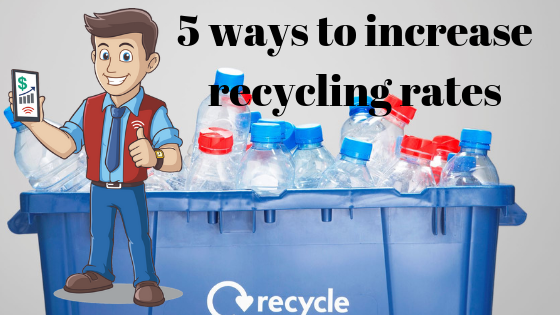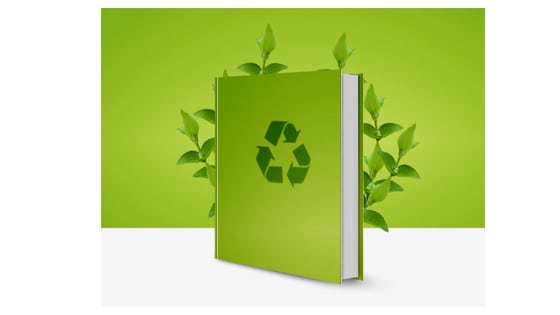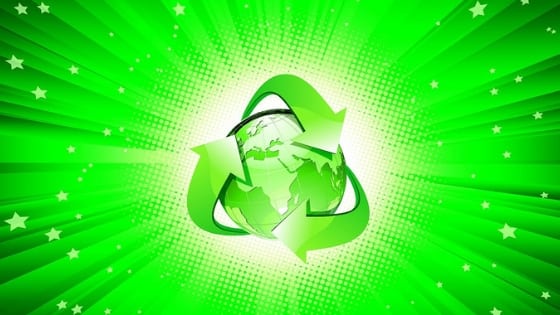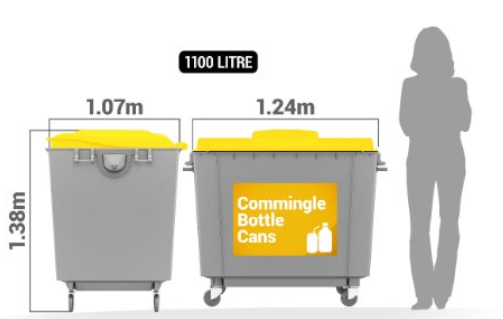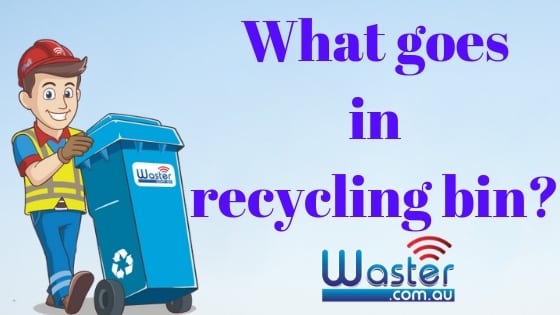
Recycling Bins Australia 2024: Recycling Can Boost Your Profits! ♲
Recycling Bins Australia: Be honest; do you see recycling and environmental awareness as an expense for your business (small business waste management) – and a necessary evil? It’s okay – you can tell us the truth. The good news is that maybe you do not have to think that way as we will explain below.
In 2022 – reducing costs whenever possible is vital as Covid support ends from the Government – at time of writing in Jan 2022.
Recycling bins Australia
We were pleasantly surprised to see that companies that focus on environmental performance also report higher profitability over the long term. Talk about a win-win situation!

If you are looking for business recycling bins for commercial use (see recycling dumpsters) for your business in Australia, you can easily check your prices and arrange your services right now through our online waste and recycling shop. Check prices for services such as general waste bin hire, medical waste, sanitary services and all business recycling bins available in the metro region of Australia by pressing the button below:
Business recycling bins Australia: how they can boost your long term profits
The Guardian newspaper reports that a number of major global corporations are furthering environmental performance and are seeing clear benefits.
“Toyota, Sainsbury’s, Walmart, DuPont, Tesco, Unilever, Marks & Spencer and General Electric have made tackling environmental wastes a key economic driver.”

Quoting from the article: “DuPont, one of the early adopters, committed itself to a 65% reduction in greenhouse gas emissions in the 10 years prior to 2010. By 2007, DuPont was saving $2.2bn a year through energy efficiency, the same as its total declared profits that year. General Electric aims to reduce the energy intensity of its operations by 50% by 2015.”
“Unilever plans to double its revenue over the next 10 years while halving the environmental impact of its products. In 2010, Walmart announced that it will cut total carbon emissions by 20m metric tons by 2015.”
Companies argue that eliminating or reducing environmental waste and office recycling often leads directly to reducing financial waste. This focus on being “lean” with waste production and recycling – often translates to lean financial focus also. “Environmental waste is the best proxy for identifying and eliminating economic waste. That’s the secret of these companies.”
For third party evidence of the efficacy of focusing on reducing general waste and environmental footprint: over 47 studies from organisations like The Economist and Goldman Sachs have provided empirical evidence of financial outperformance by companies that make challenging environmental commitments.
This is food for thought if you run a large or small business.
See our blog on co-mingled waste recycling. Also, see our blog on cardboard recycling.
On a slightly different note: see Aodhan’s advice to his 20-year-old self. That is a scary thought!
When you are running a business, you can often hear the buzzword of “stakeholders” being used. This can refer to many different people from staff, customers, investors or just people in the local area. Many of the world’s leading businesses are saving money and helping the environment by focusing on cheap recycling bins in Australia. Of course, you can, too!
Even if your business is not exactly as large as the world’s 100 biggest companies, there is a lot we can learn from what market leaders are doing. You can still position your business with hard work and dedication for growth and sustainable profitability.
In this part of the section, we will cover the latest trends in environmentally-focused investors and utilising smart recycling bins in Australia as part of their environmental commitment.
Waster provides all waste and cheap recycling bins collections to businesses (both small and large) on flexible 30 day agreements and no lock-in contracts (with no hidden extras). You can arrange your bin services; or you could simply compare prices in our online shop now:
How cheap recycling bins for commercial use can actually please investors and grow your business!
Current trends with big companies see an increasing focus on environmental awareness and the reduction of environmental impacts. You can see this everywhere from smarter packaging to huge environmental impact documents published every year by listed businesses.
The Climateaction100 initiative is seeing advocacy for environmental awareness from investors placed on major corporations. This is because people become increasingly aware of their actions. This is expected to make it clear to big business. There are financial benefits of minimising your footprint.
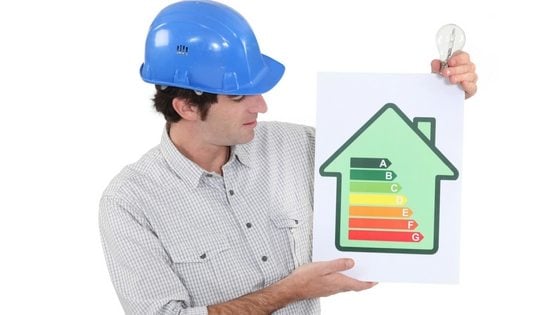
This same benefit can be gained by small businesses in Australia also – even if you are not listed on a stock exchange or have third party investors. We often find that using your environmental commitment as a marketing aid can really help grow sales. Many modern customers also like to spend their dollars on responsible businesses. And of course, that does not just mean big business.
The good news is that using cheap recycling bins in Australia can help you achieve this goal whilst saving money immediately!
Food for thought
There are developing trends globally focused on minimising environmental impacts for both large and small business. A small business can easily reduce environmental impacts by using cheap recycling bins – all the while saving a significant amount of money!
See our recent blog on what it would entail arranging carbon neutral waste management.
Recycling bin info
Recycling Bin: when we are arranging waste and recycling services for our businesses, the advice is usually “recycle as much as you can” as this will help the environment and also safe you money (as in most states – recycling can be significantly cheaper than dumping waste at a landfill). There is thankfully lots more focus on recycling and reducing waste – partly due to the new ABC tv show: War On Waste.
Waster offers a real alternative to small and medium Australian businesses for waste and recycling bins Australia services. With our flexible 30 day agreements and low cost model – you can say goodbye to lock in contracts and rollover clauses Check out your waste and recycling bin options online today:
How the recycling bin may soon help build our infrastructure in Australia and worldwide
There have been a growing number of uses for recycled products. But, a very promising one is actually using plastic for roads – as has been spearheaded in India. This article from the India Times which we quote below explains the concept.
“Disposal of waste plastic is no longer a problem in the steel city with Jamshedpur Utility and Services Company (JUSCO) using bitumen technology on waste plastic, ranging from polybags to biscuit packets, for constructing roads.”
“JUSCO, a 100 per cent subsidiary company of Tata Steel which maintains and provides municipal services in Tata command area of the city, has constructed 12-15 km road in the steel city as well as Tata Steel Works besides widening 22 roads using the environment-friendly technology of utilising waste plastic.”
The practice also saves on the maintenance of the road:
“The use of bitumen has been reduced by 7 per cent ever since JUSCO began using waste plastic in road construction work, he said, adding that the quality and longevity of roads made of waste plastic-aggregate-bitumen was two times better than bitumen road.”
“Besides being water-resistant, it has better binding property, higher softening point, can withstand high temperature and higher load, has lower penetration value, costs less as compared to bitumen road and has no toxic gas emission, Dandpat said.”
This certainly is a promising story. It shows that we are constantly finding new ways to help the environment and also the public purse. For more innovative developments, see our article on The Ocean Cleanup founder in Gold Coast rubbish removal.
See our blogs on recycling Brisbane and commercial bins. Also, see our blog on pollution of isolated islands in rubbish removals Sydney.
What is a recycle bin?
Recycle bin: When we say recycling ideas, do you think of using the same idea over and over again? Or, do you think of coming up with new ideas to boost recycling? Well in this case, thankfully, we are talking about a really new and fresh idea.
Much of the modern startup sector thinking is applying great ideas to new areas (i.e., like crowdsourcing etc.) In this part of the blog, we look at the great idea of running a lottery-style incentive to boost recycling rates and outcomes.
It is always nice to know that there are very smart people (or at least smarter than me) out there trying to improve things – and in this case, boost recycle bin rates versus general waste.
Recycle bin – can we apply lottery approaches to boost recycling rates?
We all know, as responsible citizens in Australia, how important it is to use your recycling bin to help the environment. In addition, it also reduces your business costs. This is even more important in 2024, as due to restrictions on the quality of recycling commodities accepted by China and other countries, what goes in the recycle bin will be under more scrutiny than ever. Check out our new blog on why recycling is good for the Aussie economy in 2024.
We have covered the proposed introduction of cash for container schemes in Queensland and Western Australia.
We recently read a very interesting article on the website – theconversation.com, which proposed using the system of lotteries to boost recycling rates.
In Qld, the plan is to pay a cash or credit per container (of c.$0.10 per container). The article suggests that:
“But is Queensland missing a trick here? Economic evidence suggests that the scheme could be cheaper to run, and boost recycling more, if it was run as a lottery instead, with every recycled bottle representing a “ticket” to a prize draw.”
The argument is basically that people would respond better to a large cash win – than a smaller reliable amount: “economists also know that the type and size of this financial reward can have a large bearing on people’s behaviour. For many decades, researchers have focused on working out which rewards prompt the most effort. One key question is whether participants respond better to small, reliable rewards, or to being offered a chance of a big windfall.”
“Instead of getting 10c per container, Queenslanders could instead be given an electronic ticket for each container recycled.”
“A poorly designed lottery might conceivably work too well – recycling rates might become so high that they overwhelm the infrastructure or cause a glut of recycled materials. This has been shown to be possible when lottery-style contests are used in other environmental regulatory contexts. For example, contests that use pollution reduction as a lottery criterion can be too successful – driving down emissions hugely but at a significant cost to economic output.”
This sort of innovative thinking is really exciting as it is proven in many contexts to deliver real results. See our blog on how to influence concepts that can boost workplace recycling in recycling Adelaide.
Check out our blog on smart ways to use plastic bottles to light sheds in collecting rubbish.
See our blog on recycling dumpsters.
Recycle bin innovations to ponder on
At Waster, we love to see innovations in recycling bins Australia technology all the time. We agree that this sort of idea is certainly interesting. Whether it will actually boost recycle bin rates or not, I have no idea. But, it is always good to try new concepts.
We will keep you posted on any updates.
Recycle bins and the environment
Recycle bins: At Waster, we talk about boosting recycling and decreasing waste (through recycling bins) in Australia going to landfill every day. We asked ourselves today if a clean environment is an actual human right or whether it is just a nice thing to have? The United Nations has been the key driver to a definition of environmental human rights, though the process has been slower than those for other human rights. And in fact, they still are not enshrined.
Of course, in Australia, we are lucky to live in a country with amazing natural resources and a clean environment such as air and water quality – alongside the availability of various waste management and recycling bin services.
In other countries, they are not so lucky. However, it is not possible to think that just because we have recycling bin services in Australia (such as recycle bins NSW), we are immune to what happens in the rest of the world.
The world is one when it comes to recycling bins and the environment
We have covered in other blogs how the world really is one. Hence, any recycle bins programme and recycle bin options would have to be implemented on an international level.
When rubbish enters the rivers and oceans in one country, it will not take long for it to make it to the open ocean.
This means that a local rubbish tipping problem will very quickly become an international one. See our blogs on the horrendous and hard to believe scale of the Great Pacific Garbage Patch.
The other thing to be remembered is that we live in one single eco-system called the earth. When pollution enters the food chain, such as a fish-eating microplastics in the middle of the ocean, it can have a far-reaching impact in many parts of the earth.
As a society, we really do not know the full damage caused when marine life eats plastic, nor when humans eat that fish etc.
Recycle bins – can recycling play part in delivering a clean environment for the future?
The Guardian newspaper states: “Environmental human rights, which guarantee breathable air, safety from toxic exposure and a voice in environmental decision making, are crucial to breaking the cycle of poverty, vulnerability and unsustainability in which too many of the world’s people are trapped.”
“The idea of the environment as a human right has been grinding its way through the United Nations system since the 1980s, repeatedly tabled by governments for further study.”
“Socially responsible shopping and green product certification can help, but they are no substitute for strong protections at the source of the problem. And without global recognition of those protections as human rights, there will always be another neighbourhood – and another country – onto which the harmful effects can be externalized, exported and dumped.”

We certainly believe the clean environment should be protected by legislation. But, we should also play our part by boosting recycling, minimising packaging (what can be recycled) and reducing pollution of our seas ). See blog on rubbish tip Perth) is a good step in the right direction.
Check out our blog on polystyrene recycling.
At Waster, we are always trying to help companies boost their recycling performance and hence save money on their waste management bills. However, one of the fundamental questions we hear from the hardworking businesses in Australia is what can go in the recycling bin.
Whether you are a recycling expert or just a concerned resident who wants to do their best to help the environment, the question of what can go in the recycling bin is key to boosting recycling overall.
In 2024, what is happening due to the national recycling crisis?
You may have heard in the press or from your waste management company that there is an ongoing and worsening crisis in the Australian recycling sector.
This is because of what can go in the recycling bin and what can not. One of the problems that have been occurring is that people have been putting general rubbish in the recycling bin. Hence, entire loads of recyclables are being rejected by the recycling plants.
This means that more recycling is actually ending up in a landfill than should be the case.
The problem has got so bad that some municipal councils such as Ipswich in QLD have actually stopped their commingled recycling service (i.e., the yellow bin for mixed recycling).
So, what can go in the recycling bin?
In this fun and informative quiz, we aim to cover some of the trickier items in everyday recycling bins for commercial use – whether in your own private house or in a commercial office or restaurant.
We cover tricky (or seemingly easy) questions such as:
- Wine bottles (i.e. normal glass recycling)
- Broken wine glasses – how could they be different?
- Plastic bags and soft plastics
- Takeaway coffee cups – and the thorny question as to if coffee cups are recyclable
- Coffee pods – such as for Nespresso and other brands
- Organic waste such as banana skins
- Where you can dispose of cardboard boxes
- Can a pizza box be put in the cardboard bin?
What are the benefits for you of doing this test?
Who said it was a test? I jest, we prefer to call it a quiz on what can go in the recycling bin in Australia! So relax, have fun and see how you do.
We highlight some smart solutions for your various waste streams such as using composting and organic waste services for your food waste.
We also show how you can take advantage of free services such as the TerraCycle – Nespresso arrangement to recycle your coffee pods. So, you do not need to feel guilty about your morning brew!
We also highlight how Aldi accepts batteries from private individuals for recycling and also refer to Planet Ark – who provide a whole range of services for Australian businesses.
This info should give you good information on what goes in each type of bin – i.e. as per the Australian standard bin colours so fewer mistakes are made.
In future blogs, we will give you more detail on a bin by bin basis.
Questions such as what can go in the recycling bin for various colours:
- What goes in the red bin for general waste – see our blog here.
- What goes in the yellow bin – for commingled recycling
- What goes in the blue bin – i.e. for cardboard and paper.
Check out our other interactive calculators:
How long does trash take to decompose in a landfill?
Carbon neutral calculator – to work out how to offset the carbon emissions from your bin collections.
Bins for recycling – fashionable clothes
Bins for recycling: if you are a fashionable person who cares for the environment, would you combine both your interests and actually wear clothes made from rubbish? If you have ever seen the Will Farrell comedy character Jacobin Mugatu describe his Derelict fashion collection in the movie Zoolander, you may be having nightmares! However, scientists are launching a new project whereby they can make amazing clothes out of plastic pollution in our oceans.
Bins for recycling in Australia – can rubbish actually produce fashionable clothes?
We have covered the waste issue in our oceans in previous blogs such as national resource recovery and our blog on how 3d printing can help the environment.
The BBC reports that: “A concept by Spanish clothing brand Ecoalf could help. The fashion company’s complex and revolutionary sustainability project aims to transform the plastic debris found in the depths of the Mediterranean Sea into thread for fabric, which is then used in its clothing. The project, Upcycling the Oceans, has been nominated for an award at 2017’s Beazley Designs of the Year.”
Ecoalf’s slogan is: ‘Because there is no planet B,’ and the company’s goal is “to create the first generation of recycled products with the same quality, design and technical properties as the best non-recycled products.” So far, it looks like they are on their way to doing just that.”
The Upcycling the Oceans (or UTO) project, originally launched in 2015 in Ecoalf’s home country of Spain, revolves around a circular economy model that revolutionises the process of creating clothing. There are three main steps: first, local fisherman collect the plastic from the Mediterranean Sea bed, it is then purified ready for polymerisation (transforming the waste into pellets), then finally a continuous filament is created through the extrusion and spinning of the pellets into thread for fabrics to be used in garments.

The company has worked on numerous designs and partnered with Spanish designer Sybilla to “create a 10-piece collection featuring brightly coloured reversible coats and jackets in nylon that is created from discarded fishing nets.”
The good news is that the idea is being introduced in other countries also such as Thailand. After all, the majority of global clothing is manufactured in Asia currently.
If you are a regular reader of our blogs, you will know that we often promote the easiest recycling options first. This (for most businesses) is usually a cardboard recycling service first and then commingled recycling waste bins as a second step. A commingled bin (the yellow bin in Australian recycling colours) is very versatile that can take varied packaging such as bottles and cans as well as cardboard.
However, this bin can sometimes raise questions from customers. In this section of the blog, we hope to provide a simple rule of thumb as to what should and should not go in the bin.
Rule of thumb for your commingled recycling waste bins in Australia!
A commingled or mixed recycling waste bins service is very versatile and suitable for businesses such as offices or cafes, restaurants. The bin can contain mixed recycling containers such as plastic bottles, metal cans, cardboard boxes etc.
Important Note: As of 9 November 2022, REDcycle is on a temporary pause.
We have had a couple of issues recently where commingled recycling waste bins have been rejected by the truck for being contaminated. What had happened was the client was putting bottles and cans in plastic bags in the bin. The problem was that the bin should not contain plastic bags or soft plastics generally. Soft plastics can, of course, be brought to a REDcycle bin at your local supermarket for free.
We were reading an excellent infographic published first at theconverstion.com by Jenni Downes, a Research Consultant at the Institute of Sustainable Futures, University of Technology Sydney.
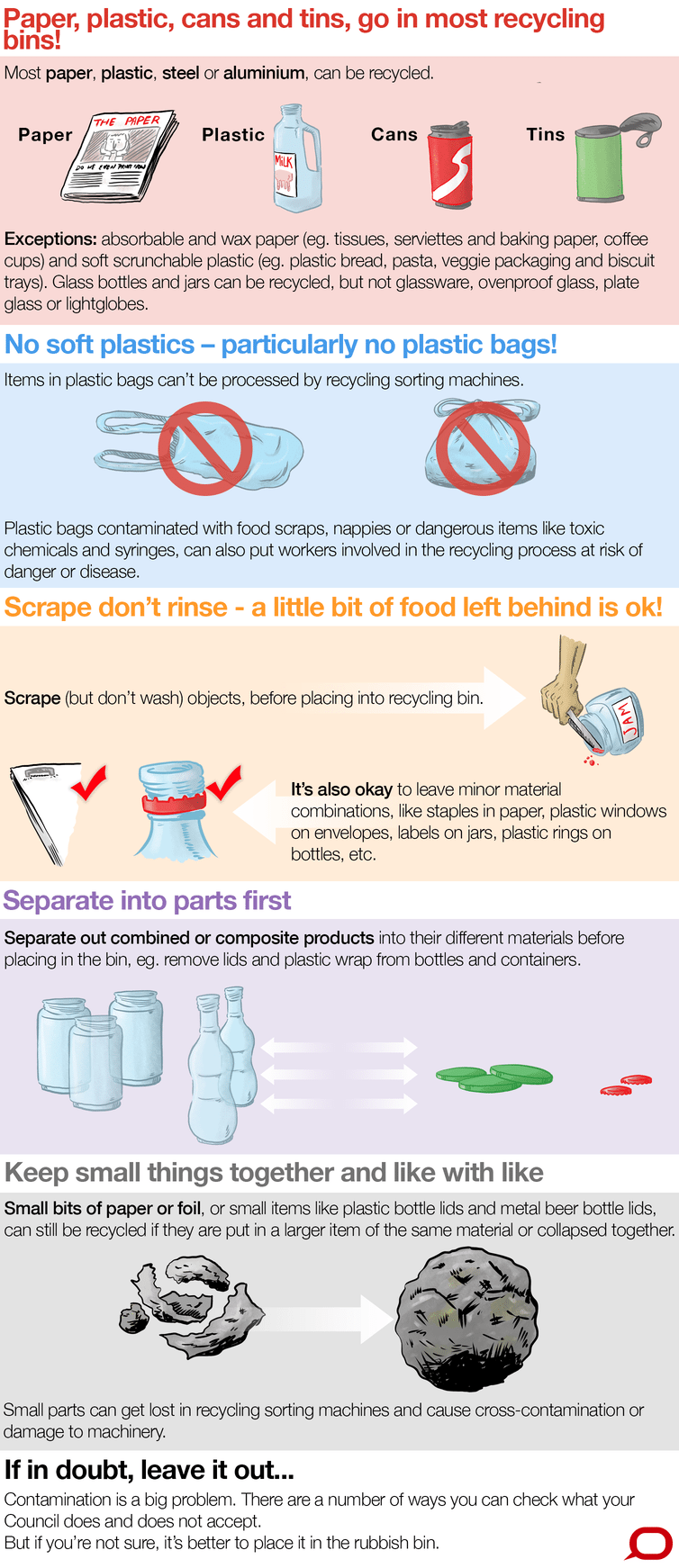
The key tip from Waster is to not include plastic bags in the bin. Remove lids and remove excess waste is great.
A query we have also had from customers was whether dropping glass bottles into bin was dangerous when not bagged. We suggest you place bottles in an open cardboard box if you are concerned.
Keep in mind that…
A commingled recycling waste bins service is a very flexible and cost-saving approach. It should be implemented after cardboard collections (which are cheaper) and can greatly reduce your general waste going to landfill.
See our blog on how commingled bins can be a key part of a business waste management strategy.
Check out our blog on whether recycling schemes work in reducing general waste when they give money back for bottles.
How to recycle waste
Recycle waste: this is one of the easiest ways to help your business boost profitability whilst also helping the environment and potentially (if you are smart about it) using your improved performance as a marketing kicker for your business.
Nearly all business see their waste collections as purely as cost drain to their business and spend as little time as possible focusing on it. Generally, all the garbage collected in the store or restaurant is thrown out into general waste with maybe some recycling cardboard boxes or metal cans/drinks bottles removed.
A little extra effort can go a long way to improving your environmental footprint whilst helping your financial situation.
Australians are among the largest producers of waste in the world – producing c. 2.1 tonnes per capita with almost 50% of this ending up in landfill (environmental consultants are hence a growing field).
As the waste sent to landfill decomposes, greenhouse gases such as carbon dioxide and methane are released. Methane, in particular, is a very important greenhouse gas which is believed by scientists to contribute to global warming almost 21 times more than Carbon Dioxide.
Even more scary can be the impact on our seas and oceans. This should be particularly pertinent for Australians given our beautiful marine life surrounding our country.
Each and every year, it is estimated that around 6 million tonnes of rubbish ends up in the world’s oceans. 80% of this waste is plastic (which potentially could be recycled) and has led to an estimated 46,000 pieces of plastic for every square mile of ocean globally. International organisations estimate that this pollution is responsible for killing c. 1,000,000 seabirds and 100,000 mammals every year.
Potential recycle waste improvements we can all make
Even though the statistics above may sound scary, it is worth bearing in mind that your business can make big benefits by adjusting small practices in your organisation.
- Every 10 tonnes of recyclable materials recovered from your General Waste bin is roughly equivalent to taking 4 cars off the road permanently (as regards greenhouse gas emissions).
- Recycling one tonne of paper and cardboard saves approximately 13 trees or 2.5 barrels of oil.
- Each aluminium can be recycled saves enough electricity to run a TV for 3 hours.
These are real and tangible improvements that we can all make today to recycle waste – from households to your business.
Engaging your staff and customers to recycle waste
Waster.com.au finds that the majority of Australians are now very environmentally aware and want to do the right thing when it is reasonably convenient for them. We provide a simple overview as to what general waste is here.
In this regard, all Waster colour coding is in line with Australian regulations, simplifying the selection process for which bin to use (wheelie bin sizes) and for what waste type. We are finding that following the widespread success of commingled recycling waste collections in domestic settings, people have a strong general understanding as to what can and what can not be recycled effectively.
Being aware of and emphasising the potential cost saving
Waster.com.au sets out to make pricing and cost savings for recycling choices and performance crystal clear.
Looking at our Live Quote pages our pricing demonstrates that a business in Adelaide having 3 1.5m General Waste bins collected weekly could reduce their total waste spend annually by c.21% or almost $900 if they were able to remove the recyclable paper, cardboard, newspapers etc from their waste bin and implement one 1.5m paper and cardboard collection per week.
Please check our paper and cardboard pricing to test this scenario for yourself.
Using it as a marketing plus
Waster.com.au is a big believer in helping the environment whilst improving your financials.
Using your environmental performance as a marketing angle can be really effective, especially with today’s more environmentally aware consumers.
For info on larger businesses and cities doing this, check out carbon-neutral information at the Sydney website.
How to boost recycling in Australia
In Australia. we pride ourselves on our amazing country. This includes our natural environment as well as our prosperous economy. But in this section on ways to boost recycling Australia’s performance, we ask: is the economy actually fundamentally bad for our environment in 2024?
In 2024, Lucky country needs to take a long hard look at where it wants to go in the future as the lucky combination of circumstances that have helped boost recycling Australia’s performance in the last 30 years is over.
Over the last few decades, Australia has moved from a manufacturing country to one where we consume more and more products brought from abroad.
This has happened in nearly all western advanced economies as the China boom has continued on and on.
Of course, Australia has special circumstances that are argued to make competitive manufacturing difficult in Australia. These are the issues of a low population spread across a huge continent.
For example, the cost to ship a car or other manufactured goods from Perth to Sydney is not hugely different from that of Asia to Sydney.
This has resulted in our economy focusing more and more on selling primary products such as mining and agricultural products, financial services and the consumption of goods manufactured overseas.
In recent years, we have been able to boost recycling Australia statistics and performance by shipping our recycling and waste for processing in China.
In 2024, this door has been closed as the Chinese had increased the standard required for imports.
Boost recycling in Australia – we need to start manufacturing again, or recycling makes no sense!
The issue was covered recently by the ABC who quoted some recycling industry players:
“Chief executive of WMAA, Gayle Sloan, said Australia was missing out on significant economic opportunities.”
“[We’re] looking at resetting Australia to a circular economy, setting the right policy frameworks, investment and planning criteria to help us develop those secondary markets in Australia,” she said.”
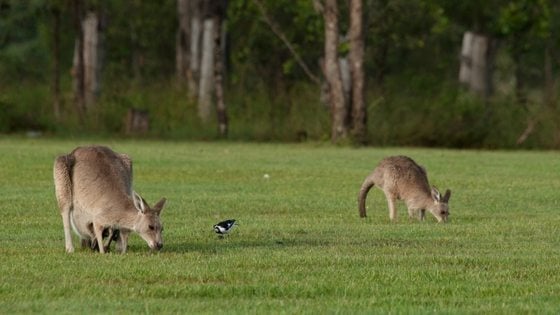
Other industry operators suggested investment at a Commonwealth level:
“The Australian Council of Recycling [ACOR] and the Waste Management Association of Australia [WMAA] have called on the Federal and State Governments to implement their $150 million plan to ‘re-boot’ the local recycling industry and spurn the creation of a circular economy.”
Waster’s view
In many ways, Waster views the problem as huge and one that can not be solved by an investment of $150m.
On a positive note, many benefits will flow from the investment, such as new jobs and focus on high tech manufacturing.
A truly circular economy will be a game-changer and will require new markets, products, distribution, etc. That is something that can not happen overnight.
In conclusion
Building a truly circular economy in Australia in the next 20 years will mean massive changes. To be honest, there is zero plan in place at this stage.
If we want to boost recycling Australia’s performance, we need a market for recycled products. At present, there is none.
In 2024, there is logically no reason to recycle domestically if you can not sell on the commodity (i.e., if it just sits there after processing).
Joined-up thinking is required, and not just from the recycling industry. Every level of the Australian economy has a part to play in this issue.
See a short video below which aims to set out a roadmap for advanced manufacturing in Australia.
This will not only provide jobs for the future but also will help boost recycling in Australia and protect our environment.

Recycling services
At Waster, we always seek to help customers reduce their waste bill by recycling more. In Sydney, where the landfill levy is so expensive, recycling is nearly always a great way to save money for your business. Of course, this can also be appropriate for households, also, who seek to get rid of some rubbish but do the right thing by the environment.
For example, one of the most common calls we receive at Waster is when households have cardboard boxes they need to have removed (i.e., after a house move or if they have bought some large items such as lots of furniture). In this case, the easiest way to get rid of the cardboard is to take it to a council waste site. They will nearly always take the cardboard for free.
Useful resources for recycling bin services in Australia
In today’s blog, we wanted to draw our readers attention to some useful recycling forums and resources that you can use as a business or as a household to get good information and find the services you need:
First up is Planet Ark. This Australian non-profit organisation provides great information and access to resources for Australian commercial and private individuals. You can find all the information you need regarding services across a wide range of waste streams.
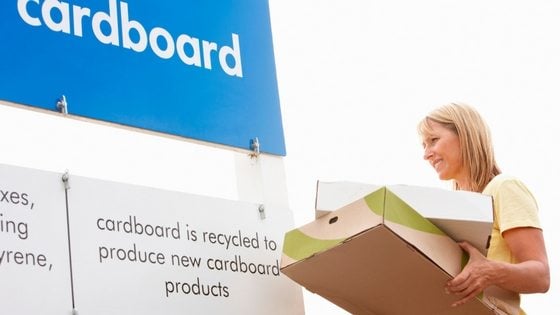
They also provide useful information telling where you can recycle near you. See the link here.
Ozrecycle.com is an online forum for Aussies to enable recycling of useful items – that otherwise would end up in a landfill. You can find some great and valuable stuff here. Their website mentions: “These items have included pianos, cars, books, televisions, dolls, stamp collections, sewing machines, wedding dresses, building materials, windows, artwork, antique furniture, fridges, stoves, tents, dog kennels printers, computers, used DVD discs and cassette tapes, fish tanks, musical instruments, and a whole lot more.”
For another organisation like that, check out Freecycle – “it is made up of 5,313 groups with 9,146,138 members around the world, and next door to you. It’s a grassroots and entirely nonprofit movement of people who are giving (and getting) stuff for free in their own towns and neighbourhoods.”
Waster offers these services!
You have to admit that recycling without professional help is difficult, to say the least. Furthermore, you, as a business, already have a lot on your plate when it comes to operations.
Waster can handle your recyclables for you. Here, we list our available recycling services you can avail:
Cardboard and Paper Recycling
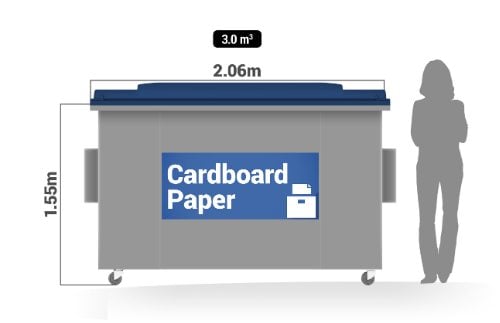
This is a very important recycling service to avail if your business generates a tonne of paper and cardboard. But, you can still get this even if you do not produce a significant amount of cardboard and paper waste.
With this, you not only reduce your costs but also help sustain the environment, as well as cleaning up your work premises.
Depending on your waste generated, you can avail Waster’s 240 litre, 660 litre, and 1,100 litre rear lift bin services (recommended for smaller businesses that produce a fair amount of cardboard and paper waster).
Additionally, you can also avail of Waster’s 1.5 cubic-metre, 3.0 cubic-metre, and 4.5 cubic-metre front lift bin services. We here at Waster recommend purchasing these front lift bins if you have a medium-to-bigger business.
Commingled Recycle Service
Our waste management and recycling services also include much-needed commingled recycling. In fact, you can put all your bottles, cans, and drink containers waste here! They will be sorted out once collected and given a new life, therefore sustaining the environment.
These are the different sizes you can purchase, depending on your business’s generated waste:
- 240-litre commingled service
- 660-litre commingled service
- 1,100-litre commingled service
TerraCycle Recycling Boxes
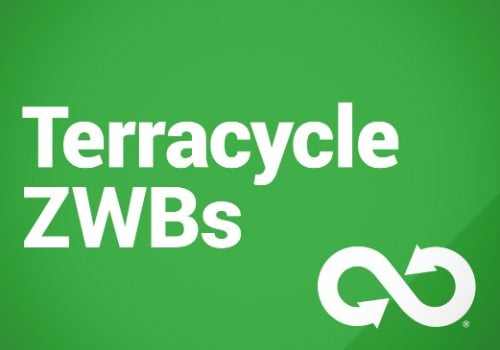
To help you fight off waste better, we have also teamed up with TerraCycle to bring businesses the Zero Waste Box.
TerraCycle offers recycling programs for waste deemed “unrecyclable”. What the term “unrecyclable” means is that this type of waste
You can choose from many options such as TerraCycle zero-waste boxes for:
- Beards and Hairnets
- Beauty Products
- Binders and Folders
- Breakroom Waste
- Cigarette Waste
- Coffee Capsules
- Disposable Gloves
- Mailroom Supplies
- Media Storage
- Office Supplies
- Pens, Pencils, and Markers
- Safety Equipment/Protective Gear
- Snack Wrappers
- Straws
- Toys
Recently, we have added more TerraCycle Zero Waste Boxes which includes:
- Oral Care Waste And Packaging
- Laminated Paper Packaging
- Art Supplies
- Centrifuge Tubes And Rigid Lab Plastics
- Fabrics And Clothing
- Bottle Caps
- Disposable Masks
- Plastic Packaging
- All-In-One
- Kitchen Separation
Additionally, in the waste management industry, problems are bound to rise – like in any other businesses. If such problems arise in regards to our service, you can talk to our friendly customer service team!
Our other waste management services
Aside from our commercial recycling services, we also provide other waste services. These include services like confidential paper destruction, general waste, grease trap cleaning service, medical bin services, and organic waste bin service.
Insights on our recycling bin services in Australia
There are some great options out there businesses can choose from. Some will really help you save money – and maybe help you furnish your house too!
Business recycling
Business Recycling ♻️: Waster is also keen to promote new ways for businesses to boost their recycling (reducing general waste contents) and also decrease their costs for waste management.
At the end of the day, having a double benefit such as reducing costs and also boosting environmental performance is a great outcome. We often promote commingled recycling as a business recycling collection service (i.e. the yellow recycling bins for bottles, cans, plastic bottles etc) as an excellent method to reduce cost and boost recycling. In this part of the blog, we will cover the latest NSW Government announcement on paying a rebate on cans and bottles through a new scheme.
Explaining business recycling and collection
First and foremost, you have to know what business recycling. We will define it here.
Business recycling mainly means being more responsible at work and dealing with your waste the environmentally friendly way.
But it also means any online resource that can help any workplace become more environmentally aware. According to Planet Ark, who can certainly help in recycling and collection efforts, business recycling can give you options for 90 materials. So, you should definitely check the website out for more information.
Benefits
You might be thinking: what is the purpose of recycling in a business environment? Can it help in any way?
The answer to that is yes. Business recycling, of course, can help you save money. It will give you a background of what you should and shouldn’t throw in the general waste bin. As a result, it saves you more money. A heavier general waste bin will cost you more, so investing in a recycling bin will help you save money leaps and bounds.
Another benefit for recycling businesses is it being recognised as being “green”. Nowadays, people are becoming more aware of the impact business operations have on the environment. People branding you as a “green business” will certainly be beneficial.
Recycling grants for small businesses
Eligible businesses can get assistance from grants with their recycling efforts. This is another way to strengthen your recycling efforts – free of charge. Here are examples you can check out:
A new reverse vending initiative in NSW
The New South Wales Government has announced that they will be rolling out a reverse vending machine network for drinks containers, whereby a 10c rebate will be paid for eligible containers. Quoting from the ABC website:
“A new recycling scheme in New South Wales has been hailed by the State Government as the biggest anti-litter initiative in the state’s history.”
“We’re talking about millions of drink containers that litter our streets at the moment, our community will have more opportunity now to do the right thing, to have it be an easy way to do the right thing.”
“More than 800 reverse vending machines will be rolled out across the state, providing customers with a 10 cent refund in exchange for bottles and cans.”
“Most empty 150 millilitres to 3-litre beverage containers will be eligible for a refund, which will be provided in the form of a retail voucher or can be donated to local charities or community groups.”
“If customers prefer cash, they can take the containers to one of 500 collection points instead.”
Insights on business recycling bins and the new Government recycling initiative
Initiatives like this by the NSW Government can really help boost recycling among businesses and the general public.
If a smart business seeks to reduce waste going to landfill and save money, boosting recycling is a really great option.
By choosing the right business recycling bins and implementing business recycling collection, it is possible to really boost your recycling whilst saving significant amounts of money. Business recycling bins can be much cheaper than general waste. For example, a cardboard bin in Sydney can be less than a third of the price of a general waste bin collection.
For more related details, see our blogs on what can be recycled.
Also, see our blog on cigarette butt recycling here.
On both a local and global scale
When you are arranging waste management services for your small business, it can sometimes be tempting to think that the changes you make to your business recycling habits and processes do not have any real impact or benefit in the real world. This can be a logical thought process when you consider the negative publicity that the Australian waste and business recycling industry has received in recent months, such as shipping rubbish to Queensland for disposal.
In this part of the blog, we wanted to cover two positive business recycling stories that highlight how small changes in your waste management habits can really have large impacts on a local and even global level that makes you a green business.
How this can make a real change on a local and global level!
In your business or home, we often put stuff in the general waste bin that would be better off in the business recycling bin. These include items such as bottles, cans, cardboard packaging, and plastic bags – all easily recyclable.
The most common reason for doing this is that we often think that it does not really matter.
Two great examples of ongoing projects that aim to show small changes can have big impacts include a plan to end the usage of seemingly innocent plastic drinking straws and another project aiming to charge people for takeaway coffee cups.
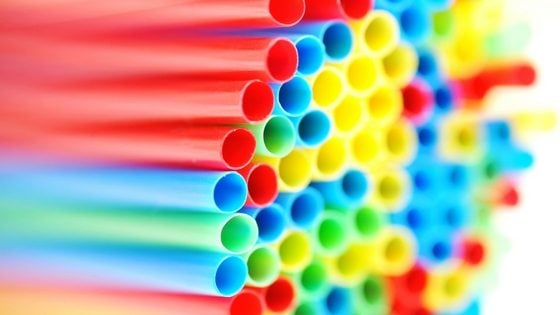
The Last Straw is a nicely named project that aims “to end the use of the plastic straws in venues around Australia. We aim to tackle the issue from both sides- encouraging consumers to use less plastic straws and encouraging businesses to give out fewer straws through staff training and information.”
The problem stems from the impact of plastic rubbish on the environment and the impact on sea life:
“There is an alarming disconnect between what’s in our hands and where it comes from, or what it means for the future. A plastic straw in my gin might seem innocent enough, but multiply that by the billions of people that buy billions of drinks across the world every single day, and you start to get an idea of the scale of the problem we’re looking at. That straw I threw away after stirring my drink will outlive me and everyone else on this planet. Unless we do something to change.”
To put the issue in perspective
Alternet.org explains:
“It’s estimated that Americans use 500 million plastic straws every single day. Here’s a scary visual to help comprehend that amount: If you were to connect all those straws together, they would measure two and a half times the circumference of the Earth. That’s just the straws consumed in the United States. And the vast majority of them don’t get recycled.”
Like all types of plastic, these straws hang around a long time and can cause real pain and danger to wildlife – particularly sea life. See our blog on the problems caused by plastic bags to learn more.
Also, see below for a video showing the impact on a sea turtle. NOTE: This video may be suitable for some viewers:

What we can learn here is that saying no to plastic drinking straws or not offering them to customers can have a real benefit.
Another great idea is the growing availability of reusable coffee cups available for takeaway coffees. If there is one thing that Australians love – it is walking with a coffee in hand. Coffee cups are very difficult to recycle. Thankfully, there are numerous excellent options available such as those offered by Keepcup. Check out all their designs and options here.
To conclude
Business recycling should be taken seriously. It can help them save money AND the environment at the same time!
Also, it is sometimes good to remember that making small changes in the way your business operates such as offering straws or takeaway coffee cups in a cafe or restaurant can have real impacts. See our blog on what we can learn from waste management in the cruise industry.
You could offer a discount for reusable cups – or only offer straws if someone requests one?
There are lots of ideas to play with and they all make a difference.
See our blog on what would happen in Australia if we all recycled more.
Check out our recycling bins for businesses in Australia.
Leave a Reply Cancel reply

Product categories
Most Popular Posts
-
Commercial Waste Management Services: Reduce Waste Collection Costs! 🚍
-
Medical Waste Disposal: Everything You Need To Find Out In 2024! 💉
-
Rubbish Removal Sydney 2024: Better Bin Collections For Business ✅
-
Clinical Waste Disposal 2024: What To Know About Business Clinical Waste ⚕️
-
Secure Document Destruction 2024: All About Security Bins Shredding 🔒
-
Free Cardboard Recycling 2024: Can I Get Free Cardboard Collection? 📦
-
Confidential Paper Disposal Bins 2024: What You Need To Know About Shredding! 🔒
-
Recycling Bins Australia 2024: Recycling Can Boost Your Profits! ♲
-
Commercial Wheelie Bin Collection: What Businesses Need To Know In 2024 🗑️
-
Commingled Recycling 2024: Why Commingled Bin Is Key To Recycling 🍾

